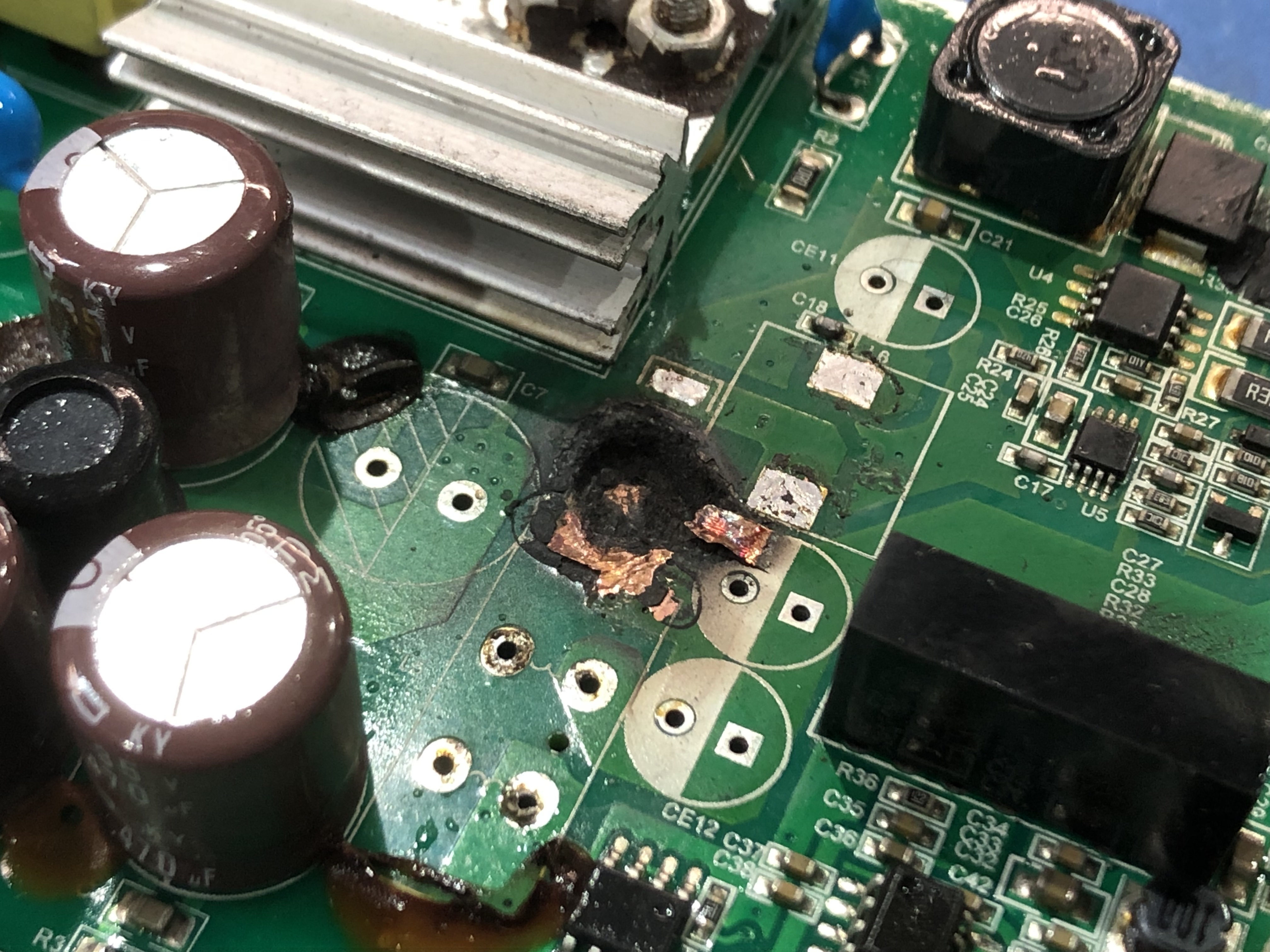突發!NVIDIA 發現 RTX 3080 / 3090 有設計問題需要回收!
大東亞香港民眾國
382 回覆
189 Like
10 Dislike
早買早維修
花生

屌你 星期一freefall

屌
性能又吹大咗
又出d咁嘅屎
 老黃
老黃
性能又吹大咗
又出d咁嘅屎
 老黃
老黃
仲要用3叔die

NVDA drop to 0

今次真係電腦大爆炸

某幾間廠奶野姐 唔跟design用cheap料抵佢recall
唔係design flaw
唔係design flaw
Asus高級咗都會死

係d非公又要超又比唔夠料

So, as an Electronics Engineer and PCB Designer I feel I have to react here.
The point that Igor makes about improper power design causing instability is a very plausible one. Especially with first production runs where it indeed could be the case that they did not have the time/equipment/driver etc to do proper design verification.
However, concluding from this that a POSCAP = bad and MLCC = good is waaay to harsh and a conclusion you cannot make.
Both POSCAPS (or any other 'solid polymer caps' and MLCC's have there own characteristics and use cases.
Some (not all) are ('+' = pos, '-' = neg):
MLCC:
+ cheap
+ small
+ high voltage rating in small package
+ high current rating
+ high temperature rating
+ high capacitance in small package
+ good at high frequencies
- prone to cracking
- prone to piezo effect
- bad temperature characteristics
- DC bias (capacitance changes a lot under different voltages)
POSCAP:
- more expensive
- bigger
- lower voltage rating
+ high current rating
+ high temperature rating
- less good at high frequencies
+ mechanically very strong (no MLCC cracking)
+ not prone to piezo effect
+ very stable over temperature
+ no DC bias (capacitance very stable at different voltages)
As you can see, both have there strengths and weaknesses and one is not particularly better or worse then the other. It all depends.
In this case, most of these 3080 and 3090 boards may use the same GPU (with its requirements) but they also have very different power circuits driving the chips on the cards.
Each power solution has its own characteristics and behavior and thus its own requirements in terms of capacitors used.
Thus, you cannot simply say: I want the card with only MLCC's because that is a good design.
It is far more likely they just could/would not have enough time and/or resources to properly verify their designs and thus where not able to do proper adjustments to their initial component choices.
This will very likely work itself out in time. For now, just buy the card that you like and if it fails, simply claim warranty. Let them fix the problem and down draw to many conclusions based on incomplete information and (educated) guess work.
The point that Igor makes about improper power design causing instability is a very plausible one. Especially with first production runs where it indeed could be the case that they did not have the time/equipment/driver etc to do proper design verification.
However, concluding from this that a POSCAP = bad and MLCC = good is waaay to harsh and a conclusion you cannot make.
Both POSCAPS (or any other 'solid polymer caps' and MLCC's have there own characteristics and use cases.
Some (not all) are ('+' = pos, '-' = neg):
MLCC:
+ cheap
+ small
+ high voltage rating in small package
+ high current rating
+ high temperature rating
+ high capacitance in small package
+ good at high frequencies
- prone to cracking
- prone to piezo effect
- bad temperature characteristics
- DC bias (capacitance changes a lot under different voltages)
POSCAP:
- more expensive
- bigger
- lower voltage rating
+ high current rating
+ high temperature rating
- less good at high frequencies
+ mechanically very strong (no MLCC cracking)
+ not prone to piezo effect
+ very stable over temperature
+ no DC bias (capacitance very stable at different voltages)
As you can see, both have there strengths and weaknesses and one is not particularly better or worse then the other. It all depends.
In this case, most of these 3080 and 3090 boards may use the same GPU (with its requirements) but they also have very different power circuits driving the chips on the cards.
Each power solution has its own characteristics and behavior and thus its own requirements in terms of capacitors used.
Thus, you cannot simply say: I want the card with only MLCC's because that is a good design.
It is far more likely they just could/would not have enough time and/or resources to properly verify their designs and thus where not able to do proper adjustments to their initial component choices.
This will very likely work itself out in time. For now, just buy the card that you like and if it fails, simply claim warranty. Let them fix the problem and down draw to many conclusions based on incomplete information and (educated) guess work.
Edit: it seems EVGA basically confirmed this by saying: " But, due to the time crunch, some of the reviewers were sent a pre-production version with 6 POSCAP’s, we are working with those reviewers directly to replace their boards with production versions.EVGA GeForce RTX 3080 XC3 series with 5 POSCAPs + 10 MLCC solution is matched with the XC3 spec without issues. "
Edit 2: Also, this could be the reason Asus is 'late' whith there cards
Edit 3: it seems Gigabyte uses non-MLCC parts but does not have problems, confirming the point you cant simply judge based on capacitor type and count.
Edit 4: now that JayzTwoCents has done a video about it it all goes wild in that thread as well
Edit 2: Also, this could be the reason Asus is 'late' whith there cards
Edit 3: it seems Gigabyte uses non-MLCC parts but does not have problems, confirming the point you cant simply judge based on capacitor type and count.
Edit 4: now that JayzTwoCents has done a video about it it all goes wild in that thread as well
一樣有事


source?
我見reddit有人話初版TUF用cheap料,極速發現問題已經立即改用MLCC,唔排除係有人收到一兩張初版
我見reddit有人話初版TUF用cheap料,極速發現問題已經立即改用MLCC,唔排除係有人收到一兩張初版
RTX 2080 用家到此一遊
喺電腦硬件界係冇人會理電子撚啲理論

張老母板用少幾粒桶仔cap都係人話呢樣話嗰樣


張老母板用少幾粒桶仔cap都係人話呢樣話嗰樣

好像話ASUS無事?
TUF用曬6粒MLCC好似都有災情

ASUS


BTW MLCC一出事就會咁
